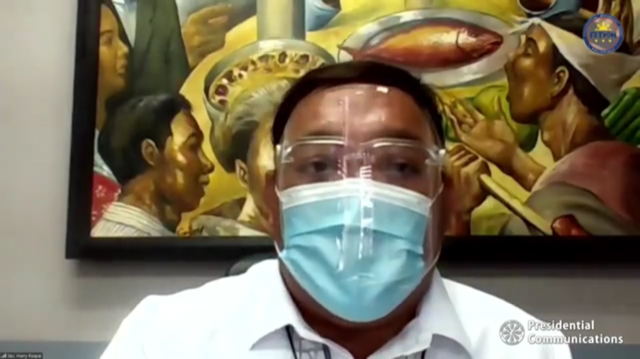Roque: Philippines' COVID-19 response not dependent on prolonged lockdown

Presidential spokesperson Harry Roque denied Friday that the Philippines only resorted to severe lockdowns amid the pandemic—a strategy that failed to contain the spread of COVID-19, according to the World Bank.
“Hindi ako naniniwala na nagpo-prolonged lockdown nga po tayo. Sa katunayan po, bukas po ang ekonomiya, maliban dun sa kakaunting mga industriya,” Roque said in an interview over state-run PTV.
(I don’t believe that we are prolonging lockdown. In fact, our economy has been open, save for a few industries.)
He was responding to the World Bank’s East Asia and Pacific Economic Update report which lowered the projected economic growth for the Philippines at 5.5% from 5.9% in December 2020 and the observation made by World Bank chief economist for East Asia and Pacific Aaditya Mattoo who said that the Philippines’ COVID-19 response “has been less successful in the region in transitioning away from shutdowns to a more efficient containment strategy.”
Likewise, the World Bank noted that the Philippines still depend heavily on tourism and overseas remittances which have taken a huge hit during the COVID-19 pandemic, and that its stimulus package “was not well targeted, with households that didn’t lose income just as likely to receive aid as those that did.”
"Kaya hindi natin inimpose ang kahit anong MECQ or ECQ maski mataas ang mga kaso dahil importante po na manatiling bukas ang ekonomiya, na hindi naman po magutom ang ating mga kababayan,” Roque added.
(We did not impose MECQ or ECQ again despite the increasing number of COVID-19 cases because it is important to keep the economy open, that the people will not go hungry.)
He was referring to the existing general community quarantine (GCQ) protocol in areas with high COVID-19 cases wherein businesses, including restaurants, are allowed to operate at 50% capacity provided they follow minimum public health standards.
Gyms, fitness centers, spas, internet cafes, cultural centers, libraries, museums, arcades and cinemas, however, remain closed in GCQ areas until April 4.
Dining in restaurants are also limited to outdoor dining until April 4.
Areas under GCQ have been dubbed as the NCR Plus bubble which include Metro Manila and its adjacent provinces Bulacan, Cavite, Rizal and Laguna.
Non-essential trips to and from NCR Plus bubble are banned until April 4.
Under the enhanced community quarantine (ECQ) imposed in March to April last year, only essential industries such as food and medicines are allowed to operate at full scale. Public transportation and mass gathering were also prohibited.
The modified ECQ is only different because it allows operation of public shuttles to transport people going to and from work.
Roque, however, maintained that the government’s COVID-19 response is not static given that the single laboratory during the onset of the pandemic has increased to as much as 220 laboratories to go along with the 50,000 COVID-19 RT-PCR test being done every day.
“Hindi naman tayo nagpabagal sa pagpapatayo ng mga testing centers, napakabilis po ng pagpapatayo natin ng mga testing center kaya nakahabol naman tayo,” he said.
(We were not slow in terms of increasing our laboratories to process COVID-19 test results and we were able to catch up.)—AOL, GMA News



